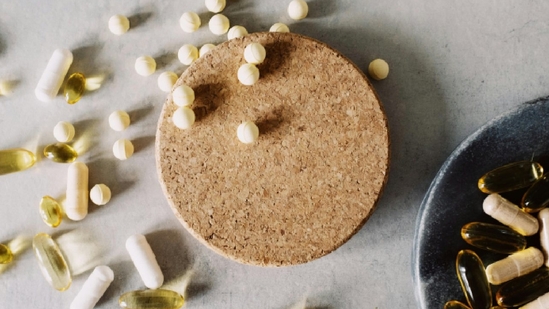Related Blog
See how you can up your career status

The beauty industry is witnessing a significant transformation, driven by a growing consumer preference for holistic, inside-out skincare solutions. Beauty supplements, once a niche category, are now at the forefront of this shift, promising radiant skin, stronger hair, and healthier nails through targeted nutrition. With the rise of social media and increasing awareness of the impact of diet on skin health, consumers are turning to vitamins, collagen powders, biotin capsules, and other ingestible beauty products as an essential part of their daily routines. The emphasis on natural, clean-label, and scientifically backed formulations has further propelled the market, making beauty supplements an indispensable segment of the global wellness industry. The expansion of e-commerce and direct-to-consumer brands has also played a crucial role in the widespread adoption of these products, allowing consumers to access personalized solutions tailored to their unique skin and hair concerns. Beauty supplements are no longer just an alternative but are increasingly being seen as a complement to topical skincare, reinforcing the belief that true beauty starts from within. As more consumers embrace the idea of enhancing their appearance through nutrition, the demand for effective and clinically tested beauty supplements continues to surge. This trend is further amplified by busy lifestyles, environmental stressors, and rising concerns about premature aging, all of which are driving people to seek convenient and long-term solutions for maintaining youthful and healthy skin.
The evolution of the beauty supplement market is closely linked to advancements in nutritional science, dermatology, and biotechnology. Increasing research into the role of micronutrients, antioxidants, and bioactive compounds in maintaining skin elasticity, hydration, and protection against oxidative stress has led to the development of highly effective formulations. Collagen peptides, hyaluronic acid, ceramides, and omega-3 fatty acids have emerged as key ingredients in many supplements, offering scientifically backed benefits for skin and hair health. Additionally, the rise of plant-based and vegan alternatives has broadened the consumer base, catering to individuals who prefer cruelty-free and sustainable options. The popularity of personalized beauty solutions, powered by AI-driven analysis and genetic testing, is also shaping the future of the industry, allowing brands to create targeted formulations based on an individual’s nutritional needs and skin type. Beauty supplement manufacturers are increasingly collaborating with dermatologists, nutritionists, and cosmetic scientists to develop formulations that are not only effective but also safe for long-term consumption. With regulatory authorities tightening their stance on product claims and ingredient transparency, brands are focusing on clinical trials and third-party certifications to gain consumer trust. The trend towards preventive skincare—where individuals proactively consume beauty-boosting nutrients to delay signs of aging rather than relying solely on corrective treatments—is redefining the industry’s approach to beauty and wellness. This shift is further supported by the growing acceptance of ingestible beauty solutions in mainstream retail channels, with pharmacies, supermarkets, and beauty stores dedicating shelf space to these innovative products.
Beauty supplements are influencing multiple consumer demographics, from millennials and Gen Z individuals seeking enhanced glow and acne-free skin to older consumers looking for anti-aging and skin-firming benefits. The demand for collagen-based supplements, in particular, has seen exponential growth, with studies highlighting their ability to improve skin elasticity, hydration, and overall resilience against aging. Marine and bovine collagen supplements are leading this segment, with hydrolyzed forms ensuring better absorption and efficacy. Hyaluronic acid-based supplements, known for their deep hydration properties, are gaining traction among individuals dealing with dry and dehydrated skin, while biotin remains a staple in hair and nail care formulations. Probiotics, which support gut health and, in turn, improve skin clarity and reduce inflammation, have also gained prominence in the beauty supplement market. The rise of adaptogens and herbal supplements, such as ashwagandha, turmeric, and ginseng, has further diversified the category, offering consumers natural solutions to combat stress-induced skin issues like breakouts and dullness. Omega-3 fatty acids and vitamin E supplements continue to be widely used for their anti-inflammatory and skin-protective properties, particularly among individuals exposed to high pollution levels. As scientific research continues to uncover the benefits of various micronutrients, the beauty supplement industry is expected to witness an influx of innovative formulations designed to address specific skin and hair concerns at a cellular level.
With social media influencers, celebrities, and wellness experts advocating for holistic beauty routines, consumer trust in beauty supplements has skyrocketed. The expansion of digital health and beauty platforms has allowed brands to engage directly with consumers, offering personalized consultations, subscription-based models, and in-depth ingredient education. The integration of artificial intelligence and big data analytics in beauty brands’ strategies is also driving hyper-personalized recommendations, ensuring that individuals select supplements that align with their unique beauty goals and dietary preferences. While North America and Europe continue to dominate the beauty supplement market, Asia-Pacific is rapidly emerging as a key growth region, driven by increasing disposable incomes, a strong cultural emphasis on skincare, and the rising influence of K-beauty and J-beauty trends. The growing awareness of holistic health, combined with the desire for age-defying solutions, is expected to keep the market on an upward trajectory. Regulatory advancements ensuring greater product safety, transparency, and efficacy will further boost consumer confidence, leading to higher adoption rates across different demographics. As innovation in beauty and nutrition continues to evolve, the future of the beauty supplement market looks promising, with advancements in biotechnology, ingredient research, and digital health poised to redefine how consumers approach skincare and overall wellness.
See how you can up your career status
 We are friendly and approachable, give us a call.
We are friendly and approachable, give us a call.